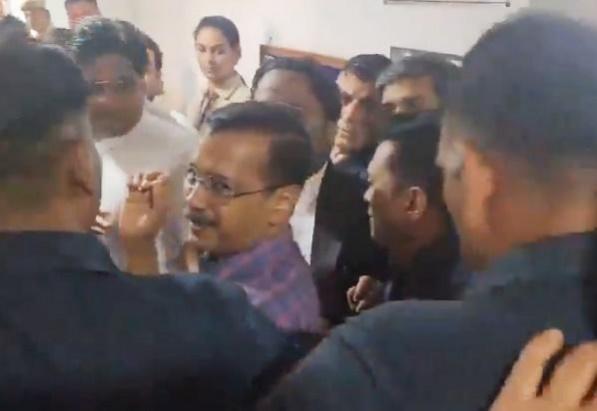
In a swift turn of events, Chief Minister Arvind Kejriwal of Delhi is set to escalate his legal battle to the apex court. This move comes in the wake of the Delhi High Court's dismissal of his petition contesting his arrest in connection to the liquor policy case.
Scheduled for today, the Aam Aadmi Party (AAP) leader's legal representatives will present the case before Chief Justice of India DY Chandrachud at approximately 10:30 am, seeking an urgent hearing. Yesterday, the high court rejected Kejriwal's challenge to his arrest by the Enforcement Directorate (ED) on March 21.
The court justified its decision by citing Kejriwal's repeated non-compliance with summonses in the money laundering investigation. Additionally, it referenced the ED's accusation that Kejriwal was actively involved in utilizing and concealing alleged proceeds of crime.
Addressing the lack of differential treatment between ordinary citizens and public officials, Justice Swarana Kanta Sharma emphasized that no special privileges should be accorded solely based on holding public office. The court's stance reflects a commitment to equal treatment under the law regardless of one's position of power.
In response to the high court's ruling, AAP leader and Delhi Minister Saurabh Bharadwaj refuted allegations of financial impropriety, highlighting the absence of incriminating evidence during searches conducted by the ED and the Central Bureau of Investigation (CBI). He asserted that the ongoing legal proceedings represent a politically motivated conspiracy rather than a genuine pursuit of justice.
Bharadwaj drew parallels between Kejriwal's case and that of AAP MP Sanjay Singh, underscoring the need for impartial justice irrespective of political affiliations. He expressed optimism that the Supreme Court would uphold principles of fairness and grant relief to Kejriwal.
Notably, this isn't the first time Kejriwal has sought legal recourse following his arrest. Initially approaching the Supreme Court immediately after his detention, he later withdrew his petition to pursue legal avenues in the trial court.
The underlying controversy stems from the Delhi government's liquor policy, which allegedly favored licensees and prompted investigations by both the CBI and the ED.

















